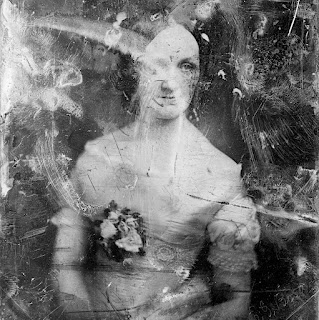Eternal Traces (Part One)
{Is it possible to completely delete a person?
Is it possible to separate a part of yourself, leave it behind, and continue to develop independently of that part of your personality, even if it dies?
“News, dreadful news! Read them yourself! Buy the paper!”
Ginger looked through the glass wall. The boy waving with the newspaper in his hand was walking towards the boutique where she worked. She could see the date on the front page; 13th May 1912. She was surrounded by nice dresses, but no customers. Though Ginger didn´t usually bother herself with the news, she felt strange poking in her stomach urging her to rush outside and get a copy before the boy sells them out. Passers-by who usually ignored newspaper sellers started to gather around him. Their eyes grew as they read the “dreadful news” the boy had spoken about. Papers were passed from one pair of hands to the other, strangers exchanged terrified sighs and glances. Ginger bit her lip and hurried outside.
“Last one, miss”, the boy said, taking a seven pence from her.
The poking in her stomach made her hide from other people, just like it told her to run away so many years ago… no, the one who ran away wasn´t Ginger, it was another person, a completely different girl. She looked at the picture on the front page only after getting back inside.
Ginger spread papers in front of her.
Her fingers relaxed and the newspaper fell, unfolding like a pile of leaves on the floor.
A girl died. She committed a suicide. Her mother found the body. Her husband kept it locked in their house, the family hadn´t seen the girl for years. The reporter wrote that the husband was at first a suspect for murder, but he proved to be innocent. His wife was unstable and…
Ginger didn´t need to read further.
She changed the sign on the door to closed. She stood in front of the mirror which the customers used when trying out one of the dresses. What an irony it was, her present job, compared to the family business… yes, her family, but still not Ginger´s family…
Has she really changed so much? The newspaper seller looked at more than one front page, saw the photo of the dead girl dozens of times, and yet didn´t do as much as flinch when he gave her the papers. All those people in the street, who were appalled by the article, nobody expressed outrage when she passed them by. She pressed her cheekbones with the tips of her fingers, made circles over her cheeks. She gently touched her forehead, went through her short hair. It was ticky because of the hair spray. She pulled her nose, blinked once, twice…
She felt satisfaction because only she understands and doesn't have to share this incredible knowledge with anyone, but she also felt alone, so alone because she was left without the only person who could actually understand…
Cynthia Samson, the girl on the front page, has been dead for much longer than the reporters wrote.
1888 - 1898
Cynthia was a happy, lively child full of energy.
1900
1901. - 1904.
Judy and Cynthia remained like a bird with stunted wings. Without Zelda, their friendship was crippled. They had a hard time talking. The duo outgrow the games they enjoyed as a trio.
Submitted: 1st March 2023
©Copyright 2022 Anakronizam aka Arijana Grginčić. All rights reserved.



Veoma zanimljiva priča, i ovaj dio koji nas je uveo u radnju je super. Sviđa mi se! Priča je dosta psihološka i zanima me kako je došlo do suicida djevojke i kakva je poveznica sa Ginger. Volim psihološke horore, stoga se veselim nastavku.
ReplyDelete